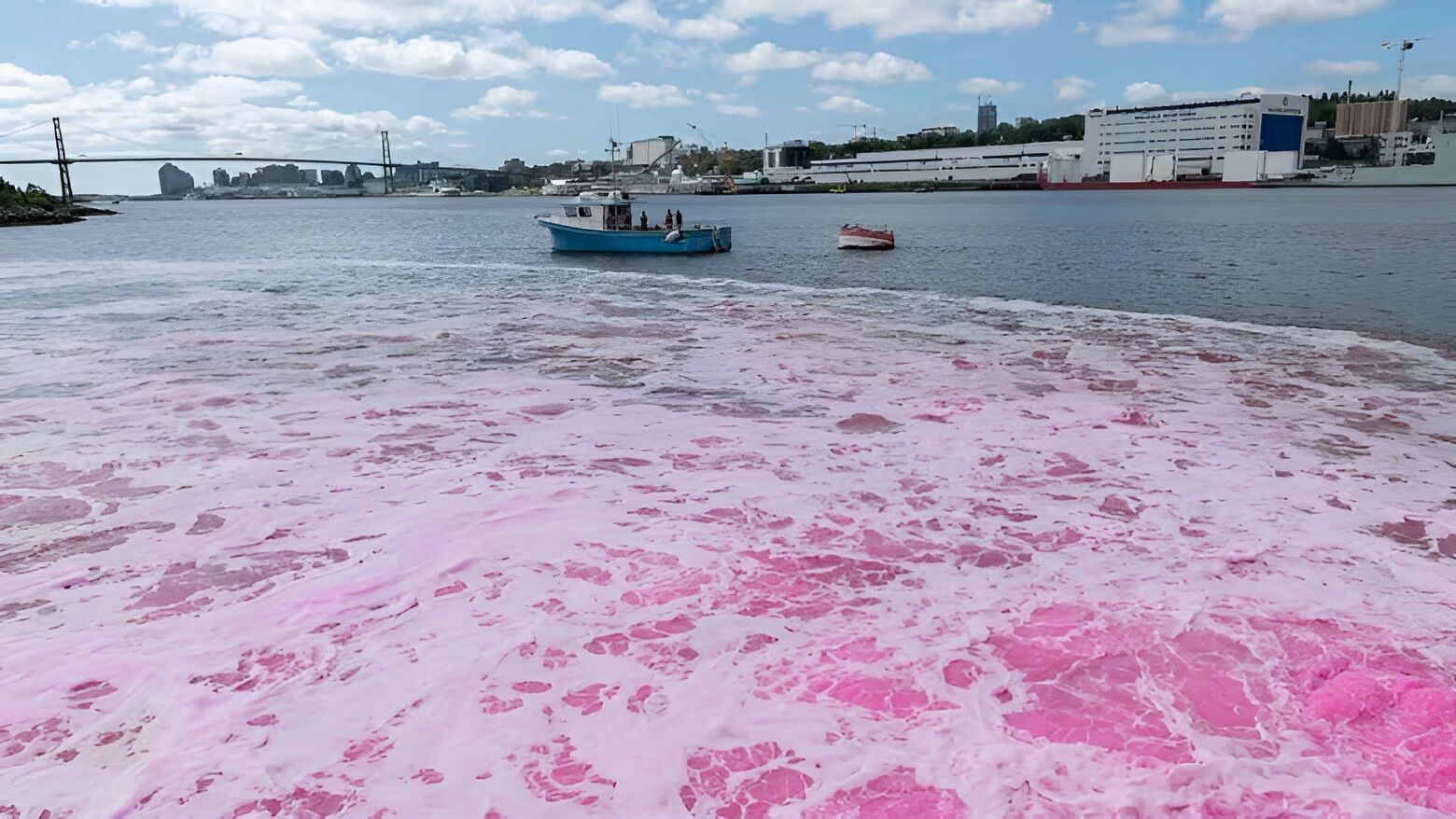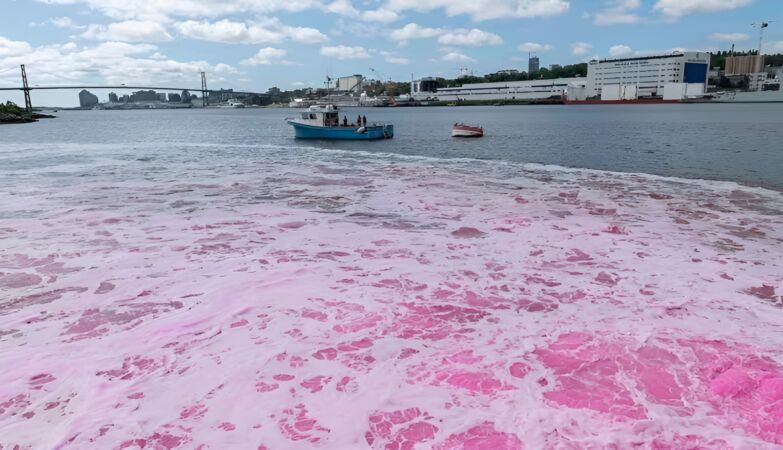Dalhousie University
Scientists at Dalhousie University in Canada used a pink fluorescent dye at Nova Scotia Power’s Tufts Cove station in Dartmouth to track the movement of water and its contents. All for the sake of science and the fight against climate change.
The experiment involved pouring 500 liters of a safe, soluble dye into the cooling water drain of a power plant. Then, several boats, drones, and underwater robots were launched to follow the dye’s path, with the goal of analyzing how materials moved in the port.
a Reportage implemented by the programme Navy noonfrom CBC Radio, confirms that the goal of this project is to help combat climate change, and to allow scientists to add an alkali to the port. Capable of retaining carbon dioxide emissionstwo.
“This is just a small part of a much larger research project,” he said. Katya Fennell, the oceanographer who is leading the investigation. “The ultimate goal is to test an idea for a technology that will help us Reduce carbon dioxidetwo Atmospherein addition to being another tool in the fight against climate change.
The data from this first experiment will be used next month, when the company Planetary Technologies You will add alkalinity, which stores carbon dioxide in the watertwo.
“It turns out that the ocean has this great capacity to store carbon dioxide.two permanently and safely, because it’s slightly alkaline, which is why the ocean actually stores huge amounts of carbon dioxidetwo – 50 times more from the air,” the researcher explained.
Alkaline materials will work on Increase carbon dioxide uptake into the ocean, bringing dangerous greenhouse gas emissions out of the atmosphere and storing them safely in the water.
In order to be able to say with confidence that this is a tool that has the potential to help reduce carbon dioxidetwo In the atmosphere we have to measure it, and precisely check and quantify the amount of carbon dioxidetwo It is effectively absorbed.

“Wannabe internet buff. Future teen idol. Hardcore zombie guru. Gamer. Avid creator. Entrepreneur. Bacon ninja.”


